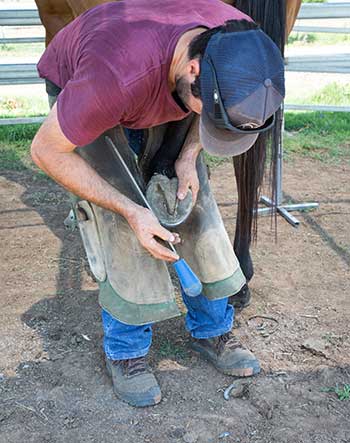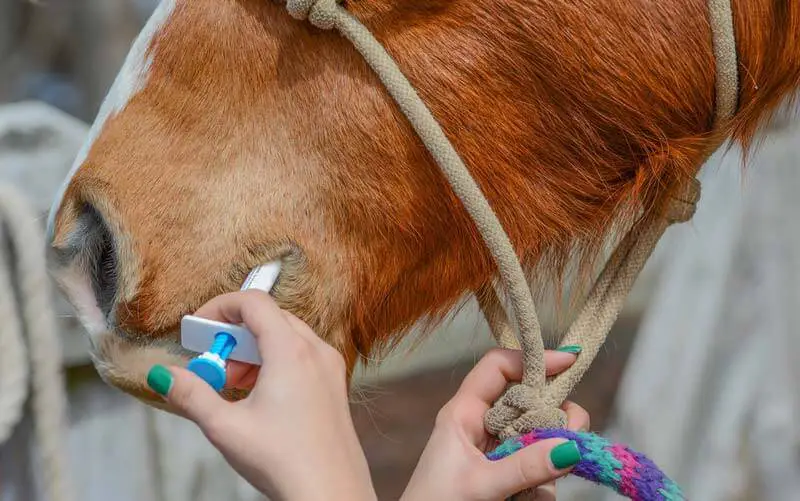 That is the question! But, the answer is not always simple. Above all, the decision to shoe a horse or leave them barefoot depends on three factors — the health of your horse’s hooves, their daily management and the quality of the trim.
That is the question! But, the answer is not always simple. Above all, the decision to shoe a horse or leave them barefoot depends on three factors — the health of your horse’s hooves, their daily management and the quality of the trim.
Shoeing may, at times, divide opinions. However, in all aspects of horse care, the most important consideration is the horse. Will the decision to shoe or not to shoe benefit their health, wellbeing and soundness? And, the answer may change at different stages of their life.
Proper hoof care is the foundation for lifelong health. Young horses may receive their first farrier visit at just one or two months of age to set them up with strong, well-balanced hooves in preparation for their lives ahead. However, the hooves are usually left barefoot.
Often, it’s not until horses begin their riding careers that shoes are deemed necessary. In this article, we present the three factors that determine if a horse requires shoes. Ultimately, the decision to shoe should be discussed with your veterinarian and hoof care professional.
Hoof Health
First, the decision to shoe a horse should be based on the health of their hooves.
A horse with strong, healthy and sound hooves may not require shoeing at all. Together, good conformation, correct nutrition, proper hoof care and favourable ground conditions support a horse’s hoof health. If your horse’s hooves are healthy, shoeing may be unnecessary.
Management and Training
However, the need for shoes may arise, depending on your horse’s management and training.
Many competitive horse sports require shoes and this may determine your decision to shoe. Likewise, horses in moderate to heavy work, or those ridden over rough terrain, may benefit from shoes. In these cases, correctly fitted shoes, replaced every 4-6 weeks, are recommended.
Hoof Care
Regardless of whether you choose to shoe or not, a qualified hoof care professional is paramount.
While shoeing and barefoot trimming both have their places in horse management, an improper job will always cause harm. A professional farrier or hoof trimmer will ensure each hoof is evenly trimmed and balanced, and show genuine care for your horse’s health and wellbeing.
In addition, a well-respected, experienced and trusted farrier or hoof trimmer will be able to guide you on all aspects of your horse’s hoof care throughout every stage of their life.



